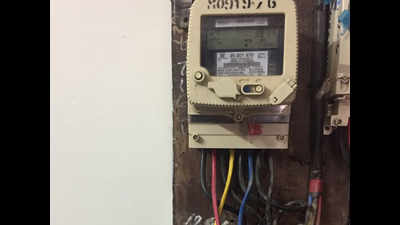- News
- City News
- delhi News
- Trouble brews for Delhi power subsidy scheme
Trending
This story is from August 15, 2018
Trouble brews for Delhi power subsidy scheme

Picture for representational purpose only.
NEW DELHI: A proposal in the national tariff policy on direct benefit transfer for subsidy disbursement could create problems for the Delhi government. As per the proposal being floated by the Centre, if the state government wants to give subsidy to certain sections of consumers, it should be done through direct benefit transfer (DBT) mechanism, i.e., straight to the bank accounts of beneficiaries.
Currently, Delhi government provides subsidy of up to 400 units to consumers, with the subsidy amount directly paid to the discoms.For BSES companies, the government usually prefers to adjust subsidy payment against the dues the discoms owe to government-run transmission and generation companies. All this is set to change, if the Centre’s proposal for direct benefit transfer becomes a law.
The proposal is part of the draft amendments to the National Tariff Policy, for which the ministry is now inviting feedback from the public. While the idea is still just on paper, it could mean an overhaul of the city’s distribution system if it becomes a law. Sources said the ministry of power was keen to finalise the proposal as soon as possible.
Delhi government has been subsidising electricity tariffs in Delhi since privatisation of discoms. When the AAP government came to power in 2015, they increased the subsidy amount to those who consumed power till 400 units and up to 50%. Over 80% of domestic consumers are covered under the subsidy scheme, say discoms.
Under the direct benefit transfer, the subsidy amount for each eligible consumer will be directly transferred to their bank accounts, and not reflected in electricity bills.
“Technically, it won’t make any difference to the consumer who will get the benefit through his account rather than in bill. But for the government, it means subsidy payments will become much more thorough,” experts pointed out.
While discoms have rarely raised the issue of late subsidy payments and they usually get it after giving the same to consumers, Delhi government will have to release subsidy benefits directly to consumers much earlier. “Late subsidy payment becomes a problem for discoms, especially as they also have to pay their generators and if they don’t get their subsidy payments on time, they end up paying LPSC charges to generators,” said an expert.
The issue of adjusting subsidy payments against dues owed by discoms to Delhi government-owned generators, IPGCL and PPCL and Delhi Transco, will also be stopped and the government will have to seek payment from discoms directly, which is a sore point especially with BSES discoms.
Currently, Delhi government provides subsidy of up to 400 units to consumers, with the subsidy amount directly paid to the discoms.For BSES companies, the government usually prefers to adjust subsidy payment against the dues the discoms owe to government-run transmission and generation companies. All this is set to change, if the Centre’s proposal for direct benefit transfer becomes a law.
The proposal is part of the draft amendments to the National Tariff Policy, for which the ministry is now inviting feedback from the public. While the idea is still just on paper, it could mean an overhaul of the city’s distribution system if it becomes a law. Sources said the ministry of power was keen to finalise the proposal as soon as possible.
Delhi government has been subsidising electricity tariffs in Delhi since privatisation of discoms. When the AAP government came to power in 2015, they increased the subsidy amount to those who consumed power till 400 units and up to 50%. Over 80% of domestic consumers are covered under the subsidy scheme, say discoms.
Those who are eligible for subsidy get the benefit directly in their power bills, and the discom then raises the bills to the government who then pay them accordingly. “But there are issues here. As per law, Delhi government is supposed to pay subsidy amount to discoms at least 15 days in advance, but that has not happened and bills are usually paid by discoms after the subsidy is disbursed to eligible consumers,” said an official.
Under the direct benefit transfer, the subsidy amount for each eligible consumer will be directly transferred to their bank accounts, and not reflected in electricity bills.
“Technically, it won’t make any difference to the consumer who will get the benefit through his account rather than in bill. But for the government, it means subsidy payments will become much more thorough,” experts pointed out.
While discoms have rarely raised the issue of late subsidy payments and they usually get it after giving the same to consumers, Delhi government will have to release subsidy benefits directly to consumers much earlier. “Late subsidy payment becomes a problem for discoms, especially as they also have to pay their generators and if they don’t get their subsidy payments on time, they end up paying LPSC charges to generators,” said an expert.
The issue of adjusting subsidy payments against dues owed by discoms to Delhi government-owned generators, IPGCL and PPCL and Delhi Transco, will also be stopped and the government will have to seek payment from discoms directly, which is a sore point especially with BSES discoms.
End of Article
FOLLOW US ON SOCIAL MEDIA










